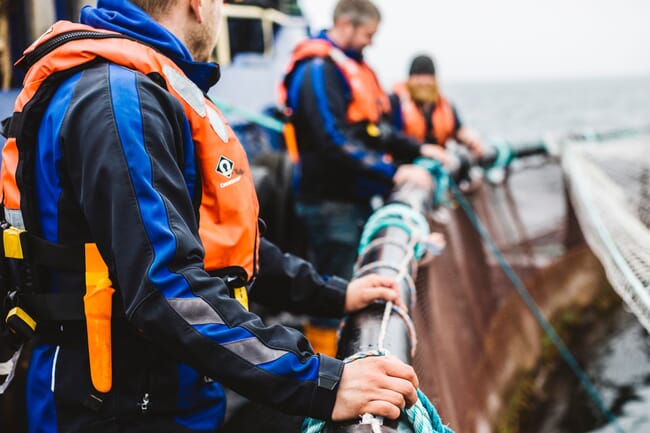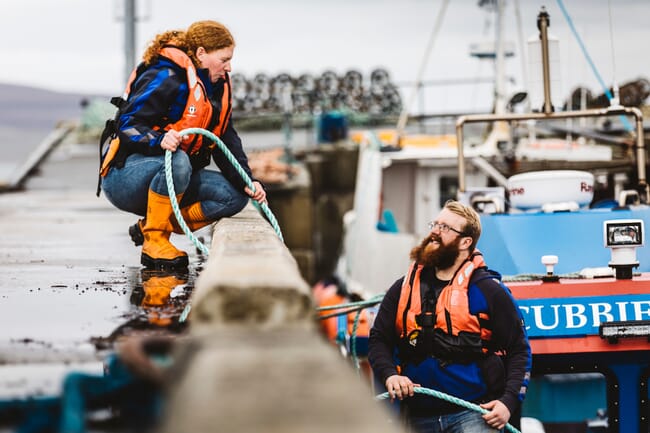Called ‘Reported versus reality: a pocket guide to Scottish salmon farming’, the booklet has been issued by all seven of Scotland’s major salmon producers, in an attempt to dispel many of the common misconceptions that many people have about the industry – misconceptions that were highlighted in the ongoing parliamentary enquiry into the industry.

© Scottish Sea Farms
As the introduction to the booklet states: “Much has been said about Scottish salmon farming in recent months; much of it misleading or inaccurate, particularly with regards to fish welfare and the impact of our farming activity on the environment.
“These inaccuracies, if left uncorrected, have the potential to do untold damage to the reputation of Scottish farmed salmon. They also have the potential to jeopardise much-needed jobs, reduce business for local suppliers, and diminish the sector’s significant contribution to the economy in terms of salaries, tax and export value.”
By producing crucial statistics about factors such as mortality levels, sea lice and environmental impacts of the industry and – perhaps more importantly – putting them into context, the booklet aims “to set the record straight and enable a fairer, more balanced dialogue about the future of this key sector for Scotland.”

© Scottish Sea Farms
One of the companies behind the idea was Scottish Sea Farms, whose MD, Jim Gallagher, reflects: “Scotland’s salmon farmers have some of the strongest credentials of all the farming sectors, particularly with regards to sustainability, with a lower carbon footprint than chicken, beef or pig farming. We’re also amongst the most highly regulated of all salmon farming countries in terms of both fish welfare and the environment, and invest millions year-on-year to find ever better ways of doing things. It’s this unrelenting commitment to meeting growing global demand for protein in the most responsible, sustainable way that we want to convey through the booklet, answering some of the most common misconceptions head-on and showing just how far the sector has come in four short decades.
“Is there scope to advance and improve further? Always. And, as recent years prove, by working closely with the Scottish supply chain, government organisations such as Marine Scotland and SEPA, and world-leading researchers we can absolutely achieve it.”




